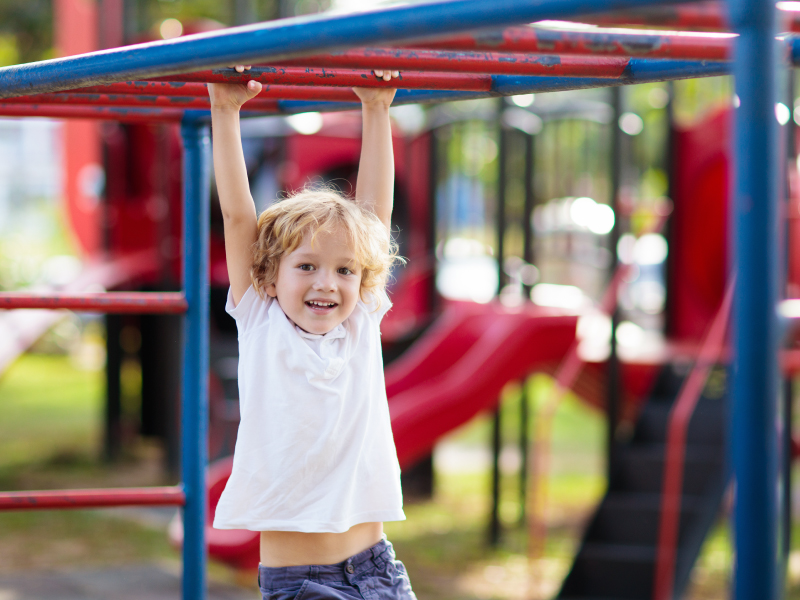Playgrounds are wonderful places where children can play, learn and grow. However, they can also be sites where accidents happen. If you are a parent, it’s important that you understand how playgrounds can cause accidents to happen and how to keep your child safe in such cases. If an injury occurs due to negligence, knowing your legal rights can help in making sure that your child receives the care and compensation they deserve.
Let us explore some common playground injuries, the ways to prevent them and the legal steps you can take in case anything happens despite your best efforts.
Common Playground Injuries
Playground injuries can range from minor scrapes and bruises to more severe incidents. Here are some of the most common injuries that your child may be prone to:
Falls: Falls are the leading cause of playground injuries. Children can fall from swings, slides or climbing structures, often resulting in broken bones or head injuries.
Cuts and Scrapes: Sharp edges, exposed nails and rough surfaces can cause cuts and scrapes. These injuries, while usually minor, can lead to further infections if not properly treated.
Fractures: Broken bones are quite a common sight at playgrounds. They often occur when children fall or collide with playground equipment or other children.
Head Injuries: Head injuries can be serious at times. They might happen if a child falls from a significant height or is struck by moving equipment like swings.
Strangulation: While less common in comparison, strangulation is a very serious injury. Strangulation can occur if a child’s clothing or accessories get caught on playground equipment.
Safety Tips for Parents
To help keep your children safe on playgrounds, you should follow these safety tips:
Supervise Play: Always keep an eye on your children while they play. Active supervision can help prevent a lot of injuries.
Inspect Equipment: Before your child plays, inspect the equipment carefully. Look for any broken or damaged parts, sharp edges or potential hazards.
Age-Appropriate Play Areas: Make sure your child is playing on equipment that is suitable for their age and size. Younger children should use age-appropriate structures to avoid accidents.
Teach Safe Play: Teach your children the importance of playing safely. Explain how to use the equipment correctly and remind them not to push or shove others.
Dress Appropriately: Avoid clothing with drawstrings, necklaces or loose items that could get caught on equipment. Proper footwear is also essential to prevent slips and falls.
Legal Recourse for Playground Injuries: The Recreational Property Act
The Recreational Property Act in Georgia limits the liability of property owners who allow people to use their property for recreational purposes free of charge. Under this statute (O.C.G.A. § 51-3-20 et seq.), property owners owe no duty of care to keep the premises safe for recreational use or to warn of potential hazards.
However, there are exceptions:
- Willful or Malicious Failure: Property owners can still be liable if the injury results from a willful or malicious failure to guard or warn against a dangerous condition.
- Commercial Purposes: If the property owner has a commercial purpose or financial incentive, the protections of the Act may not apply. For example, a university hosting free concerts to attract students may still be liable.
Legal Recourse for Playground Injuries: The Steps You Can Take
Despite your best efforts, accidents can still happen. If your child is injured due to poorly maintained equipment or negligence, you may have legal recourse.
Here’s what you need to know in such cases:
- Document the Injury: Take photos of the injury and the playground equipment. Collect witness statements and keep all medical records related to the injury handy.
- Report the Incident: Report the injury to the playground owner or operator as soon as possible. This could be a school, park district or private entity. Make sure the report is documented in writing for future reference, if required.
- Consult a Lawyer: If you believe the injury was due to negligence, consult with a personal injury lawyer, such as Karell Trial Attorneys. They can help you understand your rights and guide you through the legal process.
- Negligence Claims: To have a valid negligence claim, you must prove that the playground owner or operator failed to maintain the equipment properly or did not provide adequate safety measures, leading to your child’s injury.
Karell Trial Attorneys: Your Partner in Legal Support
At Karell Trial Attorneys, we understand the distress and challenges that come with playground injuries. Our team are experts in supporting families through these difficult times. We make sure that you receive the compensation and care your child deserves. Our experienced attorneys will guide you through every step of the legal process, from documenting the injury to filing for a claim and finally securing the compensation. If your child has been injured on a playground due to negligence, don’t wait. Contact us today to learn how we can support you and ensure your child’s rights are protected.







